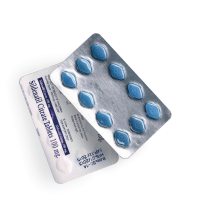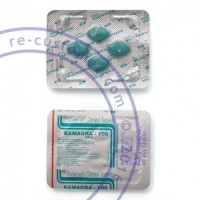Why does your prostate enlarge?
- 29 March 2023 09:42:33
- Views: 956
The prostate gland is a small gland located just below the bladder in men. As men age, it is common for the prostate gland to enlarge, a condition known as benign prostatic hyperplasia (BPH). In this article, we will discuss the reasons behind the enlargement of the prostate gland.
What causes the prostate gland to enlarge?
The prostate gland plays a crucial role in male reproductive health by producing a fluid that mixes with sperm to create semen. As men age, their hormone levels change, specifically the levels of testosterone and estrogen. Testosterone is the male hormone responsible for the development of male characteristics, including the growth of facial hair, deepening of the voice, and muscle development. Estrogen is a female hormone that men also produce in smaller quantities.
As men age, their testosterone levels decline, while their estrogen levels may increase. This hormonal shift can cause the prostate gland to enlarge. Additionally, an increase in the production of dihydrotestosterone (DHT), a hormone that is produced from testosterone, can also contribute to the enlargement of the prostate gland.
Other factors that can contribute to the enlargement of the prostate gland include:
- Family history: Men who have a family history of BPH or prostate cancer may be more likely to develop an enlarged prostate.
- Age: BPH is more common in older men. In fact, it affects about 50% of men over the age of 50 and up to 90% of men over the age of 80.
- Lifestyle factors: Obesity, lack of exercise, and a diet high in fat and red meat may increase the risk of developing an enlarged prostate.
- Medical conditions: Men with diabetes, heart disease, and hypertension may be at a higher risk of developing an enlarged prostate.
What are the symptoms of an enlarged prostate?
- Frequent urination, particularly at night
- Difficulty starting and stopping urination
- Weak or interrupted urine flow
- Dribbling at the end of urination
- A feeling of incomplete bladder emptying
- Straining to urinate
- Urinary tract infections
- Incontinence
These symptoms can have a significant impact on a man's quality of life and can even lead to complications such as bladder stones, urinary tract infections, and kidney damage.
How is an enlarged prostate treated?
Treatment for an enlarged prostate will depend on the severity of the symptoms and the size of the prostate gland. In some cases, lifestyle changes such as increasing exercise, losing weight, and reducing the consumption of alcohol and caffeine can help relieve symptoms.
Medications such as alpha-blockers and 5-alpha reductase inhibitors may also be prescribed to relax the muscles around the prostate gland and reduce its size.
In more severe cases, surgery may be required to remove a portion of the prostate gland. The most common surgery for an enlarged prostate is transurethral resection of the prostate (TURP), which involves removing the excess prostate tissue using a special instrument inserted through the urethra.
Conclusion
An enlarged prostate is a common condition that affects many men as they age. It is caused by hormonal changes and other factors, and can lead to a range of symptoms that can significantly impact a man's quality of life. Treatment options vary depending on the severity of the symptoms and the size of the prostate gland. Men who are experiencing symptoms of an enlarged prostate should speak to their healthcare provider for an accurate diagnosis and appropriate treatment plan.






-200x200.jpg)

